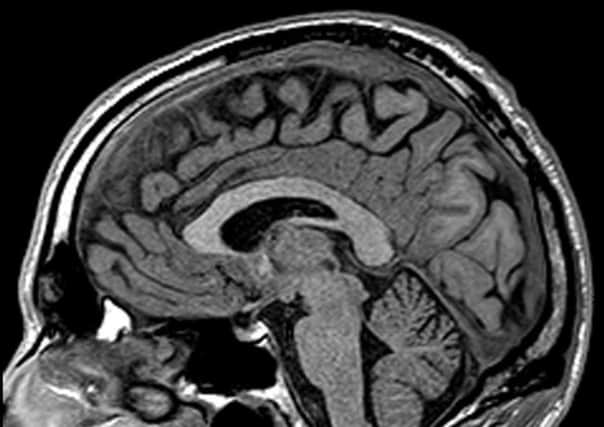Brain tumour diagnosis too slow, campaigners say


Figures show that across the UK more than a third of people (38 per cent) visited their GP more than five times before being diagnosed with a brain tumour.
The Brain Tumour Charity wants health staff to commit to three resolutions for improving the care of people with the disease and speed up diagnosis to increase their chances of survival.
Advertisement
Hide AdAdvertisement
Hide AdAround 900 people a year in Scotland are diagnosed with a brain tumour, and they are the biggest cancer killer of people under 40.
The charity’s new report, titled Finding a Better Way? Improving the Quality of Life for People Living with Brain Tumours, highlights research revealing serious gaps in the care provided to brain tumour patients and their families.
As well as long waits for a diagnosis, more than 60 per cent of those living with the disease reported being given no information about plans for their care, counselling or financial advice.
Almost a fifth of carers (19 per cent) and 13 per cent of people with a brain tumour rated the communication skills and sensitivity of the person who gave them the diagnosis as poor.
The report also found that more than 80 per cent of carers said looking after someone with a brain tumour had a negative effect on their emotional well-being, and more than half said their duties had affected their jobs, hobbies and relationships with friends and the person they care for.
The charity is using its findings to call for all health staff to commit to making improvements for patients and their families by signing up to three resolutions for the new year.
These involve making a commitment to find out more about the signs and symptoms of brain tumours and efforts to identify patients earlier.
Secondly, the charity wants staff to communicate clearly with patients and their carers and listen to what they need from services. And finally, it is calling on NHS workers to listen to people affected by brain tumours to find out what would make the most difference to their quality of life so proper care could be provided.
Advertisement
Hide AdAdvertisement
Hide AdSarah Lindsell, chief executive of The Brain Tumour Charity, said with tens of thousands of staff involved in the care of more than 55,000 people with brain tumours in the UK, their commitment to adopting the resolutions would have a “real and lasting impact” on the quality of life of patients.
“Being diagnosed with a brain tumour is a life-changing event,” she said.
“Dealing with the impact of diagnosis and subsequent management of the cancer is a difficult process, and can adversely affect the health and wellbeing of both the individual and those caring for them.
“It is crucial that the NHS and healthcare professionals do these simple things this year to respond to the needs of people with brain tumours – not simply delivering the same models of service over and over again where they are not making adifference.”
A Scottish Government spokeswoman said cancer mortality rates had decreased by approximately 11 per cent over the past ten years, with a wide range of measures put in place to reduce rates of the disease, such as strategies to tackle alcohol and tobacco use.
“We have also made good progress in advancing treatment over the last two decades and investing in staff and equipment, with cancer being diagnosed and treated earlier as a direct result,” the spokeswoman added.
“However, we know that more lives can be saved through the earlier detection of cancer, and through our £30 million Detect Cancer Early programme we are working to increase the number of cancers detected at the earliest possible stage.
“This programme is fully expected to raise awareness of all cancers – including brain tumours – among the public and health practitioners, which will lead to earlier cancer diagnosis, and crucially, save more lives every year.”
Advertisement
Hide AdAdvertisement
Hide AdCase study: ‘They basically said we have no beds and sent me home’
When Graeme MacMillan suffered a major seizure and was rushed to hospital, his family suspected he could have a brain tumour.
But the 25-year-old from Kilmarnock was told he would have to wait 12 weeks to see a consultant, and up to another 12 weeks for a diagnostic scan.
Instead, the family decided to pay privately for a consultation which ultimately led to the father-of-two being diagnosed with a tumour in April last year.
Now undergoing chemotherapy following surgery to remove the tumour, Mr MacMillan said more needed to be done to speed up diagnosis of patients and improve their care.
It was in February 2013 that a major seizure led to the self-employed joiner being taken to hospital. “I was in for about an hour and a half. They never did any tests. It was a Friday night and they basically said we have no beds and sent me home,” Mr MacMillan said.
As he is at risk of seizures and cannot drive, Mr MacMillan has been forced to stop work and his partner Leanne has taken on extra hours to boost their income. The couple also look after their children, five-year-old Liam and Emily, three, and the family has been involved in raising funds for cancer charities.
LYNDSAY BUCKLAND